
Arad: The Hidden Gem of Western Romania
Nestled in the western part of Romania, Arad is a city that offers a blend of rich history, vibrant culture, and modern charm. Founded in the early Middle Ages, Arad has grown into a bustling urban center while still preserving its historical roots. The city's architecture reflects its diverse past, with influences from the Austro-Hungarian Empire evident in its grand buildings and ornate facades. Arad is known for its beautiful parks and green spaces, which provide a welcome escape from the urban hustle. One of the highlights is the Central Park, where locals and tourists alike can enjoy a leisurely stroll or a relaxing picnic by the Mureș River. The city's cultural scene is also thriving, with numerous theaters, galleries, and museums showcasing everything from classical performances to contemporary art. Food lovers will find Arad a delightful destination, with a range of dining options that highlight Romanian cuisine as well as international flavors. The city's markets are a must-visit, offering fresh produce, homemade goods, and traditional Romanian delicacies. For those looking to explore beyond the city, Arad serves as a gateway to the beautiful landscapes of the Banat region, known for its rolling hills, vineyards, and historic villages.
Local tips in Arad
- Visit the Neumann Palace for a glimpse into Arad's architectural splendor.
- Take a walk along the Mureș River for scenic views and relaxation.
- Explore the local markets for fresh produce and traditional delicacies.
- Check out the Arad Theatre for a taste of the local performing arts scene.
- Plan a day trip to the Banat region for beautiful landscapes and historic villages.
Arad: The Hidden Gem of Western Romania
Nestled in the western part of Romania, Arad is a city that offers a blend of rich history, vibrant culture, and modern charm. Founded in the early Middle Ages, Arad has grown into a bustling urban center while still preserving its historical roots. The city's architecture reflects its diverse past, with influences from the Austro-Hungarian Empire evident in its grand buildings and ornate facades. Arad is known for its beautiful parks and green spaces, which provide a welcome escape from the urban hustle. One of the highlights is the Central Park, where locals and tourists alike can enjoy a leisurely stroll or a relaxing picnic by the Mureș River. The city's cultural scene is also thriving, with numerous theaters, galleries, and museums showcasing everything from classical performances to contemporary art. Food lovers will find Arad a delightful destination, with a range of dining options that highlight Romanian cuisine as well as international flavors. The city's markets are a must-visit, offering fresh produce, homemade goods, and traditional Romanian delicacies. For those looking to explore beyond the city, Arad serves as a gateway to the beautiful landscapes of the Banat region, known for its rolling hills, vineyards, and historic villages.
When is the best time to go to Arad?
Iconic landmarks you can’t miss
Parcul Pădurice
Discover Parcul Pădurice, a stunning park in Arad that offers a peaceful retreat with lush greenery and endless recreational opportunities for all ages.
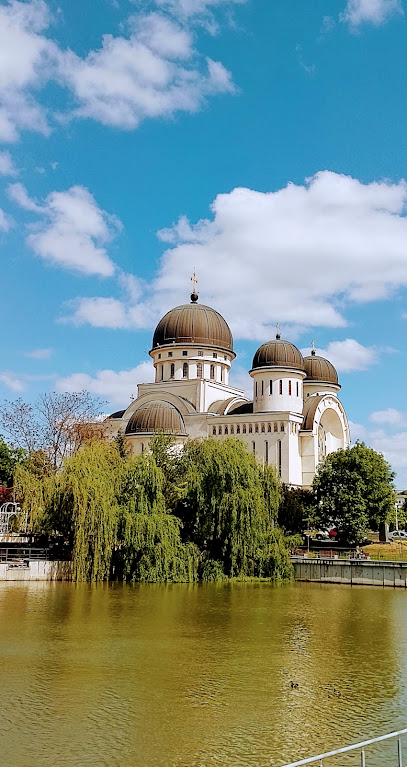
Reconciliation Park
Discover Reconciliation Park in Arad, a tranquil haven celebrating peace and unity between Romania and Hungary, adorned with beautiful landscapes and meaningful monuments.
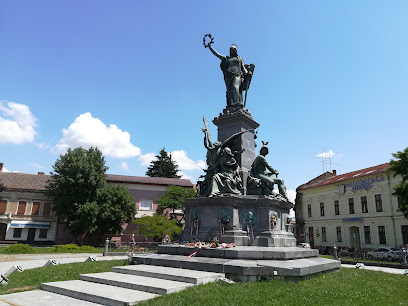
Parcul Eminescu
Experience the serene beauty and cultural richness of Parcul Eminescu, a peaceful retreat in the heart of Arad, Romania.
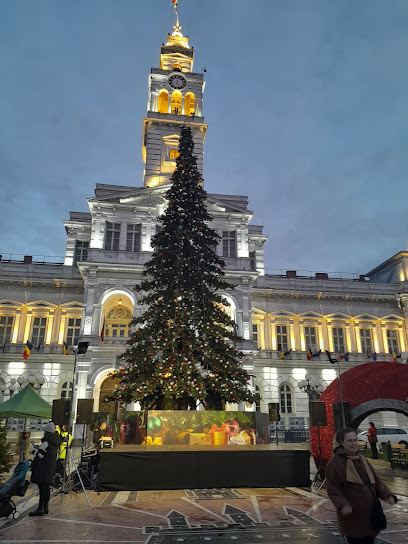
Arad Museum
Explore the Arad Museum, a cultural landmark showcasing Romania's history through stunning exhibits in the Palace of Culture.
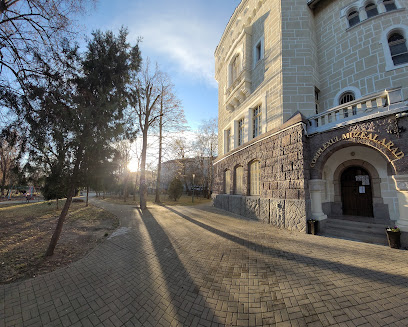
The Palace of Culture
Explore The Palace of Culture in Arad, a breathtaking historical landmark that blends art, architecture, and Romanian cultural heritage.
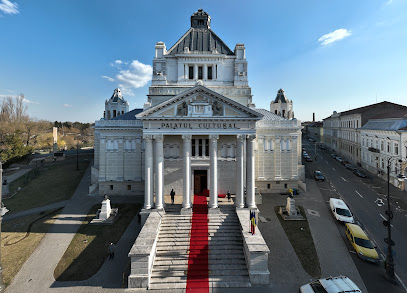
The Water Tower Museum
Discover Arad's rich industrial heritage at the Water Tower Museum, a captivating cultural landmark showcasing local history and art.
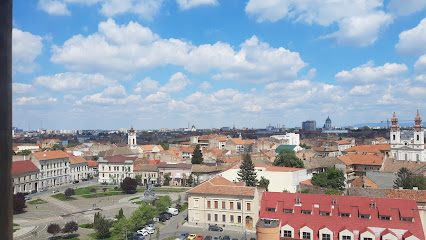
The Padlock House
Explore the charm of The Padlock House in Arad, a historical landmark filled with local legends and stunning architecture.
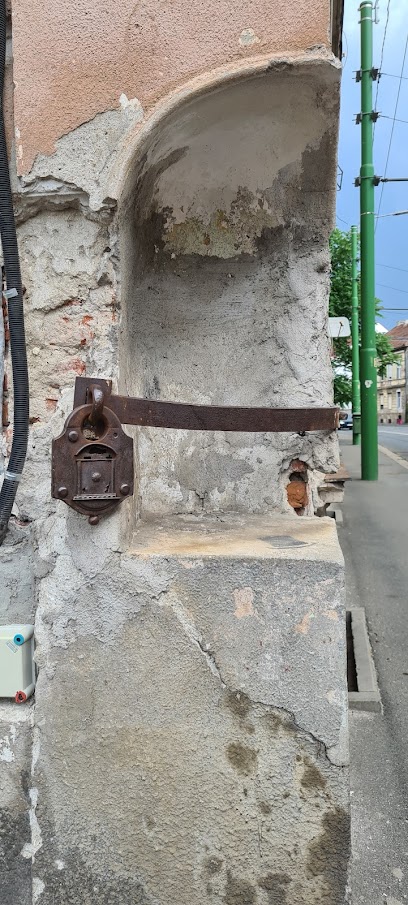
Cenad Palace
Discover the architectural beauty and rich history of Cenad Palace, a must-visit historical landmark in Arad, Romania.
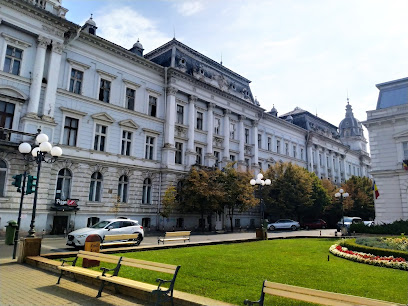
The place of the Arad Martyrs
Explore the solemn beauty of the Arad Martyrs Memorial, a tribute to the valiant heroes of Romania's past amidst a serene landscape.
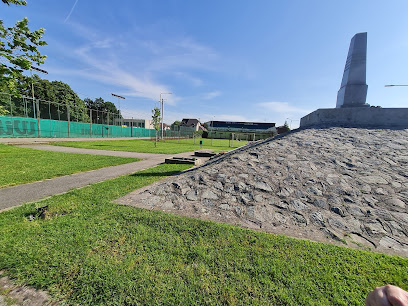
Lutheran Evangelical Church (Red Church)
Discover the architectural splendor and historical significance of the Lutheran Evangelical Church in Arad, a must-visit cultural landmark.
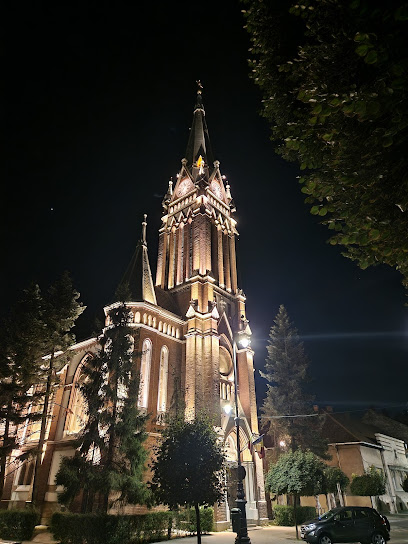
Szantay Palace
Explore Szantay Palace in Arad, Romania – a stunning historical landmark showcasing exquisite architecture and rich cultural heritage.
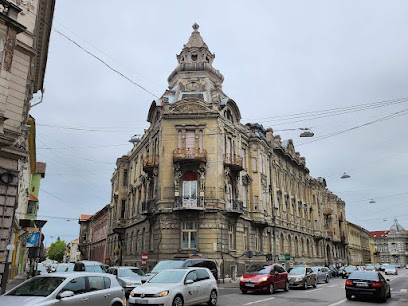
Locul Pierzaniei - Vesztőhely
Discover Locul Pierzaniei in Arad, a memorial honoring the sacrifices of the 1989 Romanian Revolution and a significant site for history enthusiasts.
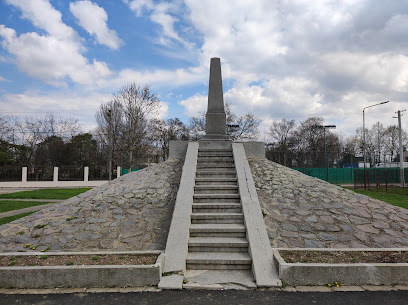
Neuman Palace
Discover the grandeur of Neuman Palace, a historical landmark in Arad, Romania, showcasing stunning architecture and rich cultural heritage.
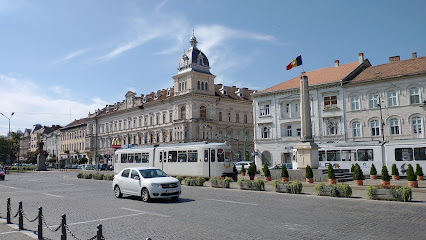
Cetatea Arad
Explore the majestic Cetatea Arad, a historical fortress offering a rich glimpse into Romania's past and stunning views of the surrounding landscape.
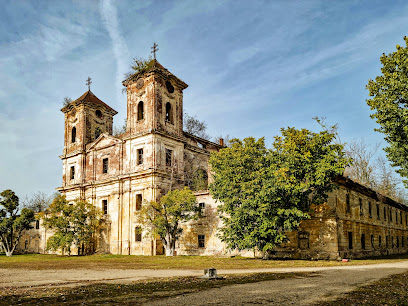
Palatul Sarbesc
Explore the architectural marvel of Palatul Sarbesc, a historical landmark in Arad showcasing Romania's rich cultural heritage.
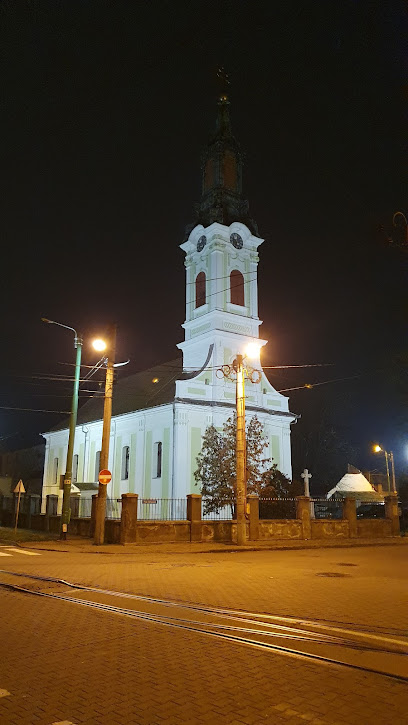
Unmissable attractions to see
Victory Square
Discover the vibrant atmosphere and rich history of Victory Square, a cultural gem in Timișoara, Romania, perfect for relaxation and exploration.
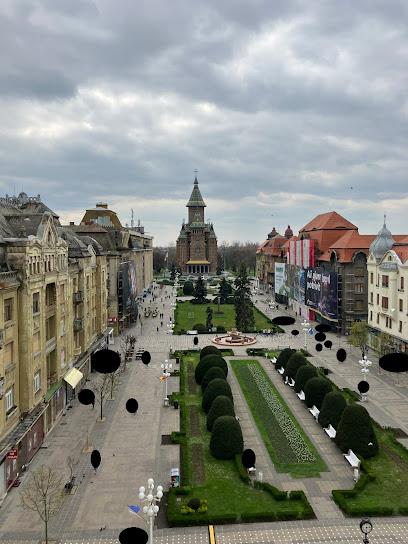
Union Square
Discover the vibrant heart of Timișoara at Union Square, featuring stunning architecture, rich history, and a lively atmosphere perfect for exploration.
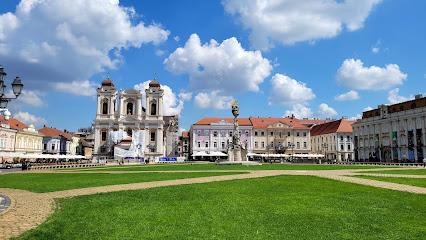
Liberty Square
Discover the charm of Liberty Square in Timișoara, a vibrant plaza filled with rich history, stunning architecture, and lively cultural experiences.
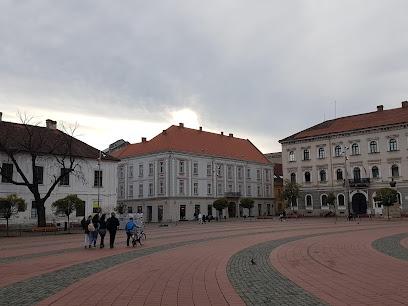
Three Holy Hierarchs Metropolitan Cathedral
Discover the spiritual and architectural beauty of the Three Holy Hierarchs Metropolitan Cathedral in Timișoara, a landmark of Orthodox heritage.
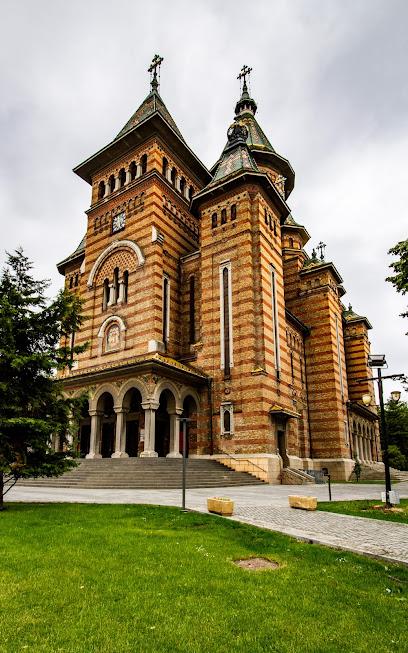
Banat Village Museum
Discover the rich cultural heritage of the Banat region at Timișoara's enchanting Banat Village Museum, an open-air showcase of history and tradition.
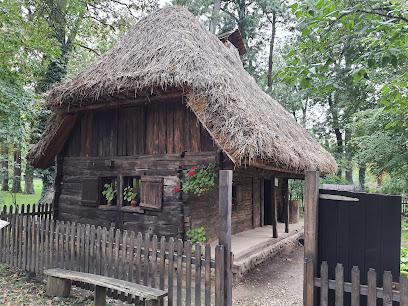
Botanic Park
Explore the tranquil beauty of Timișoara's Botanic Park, a vibrant oasis filled with stunning flora and serene pathways.
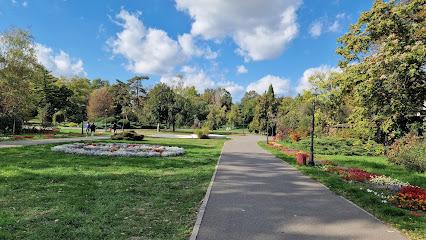
Parcul Pădurice
Explore Parcul Pădurice in Arad for a serene escape filled with nature walks, picnics, and family-friendly activities in a lush urban oasis.
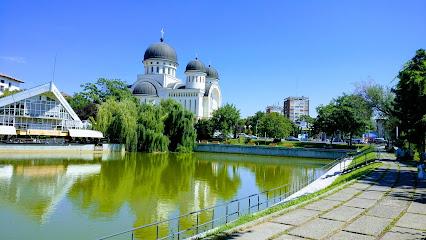
Parcul Pădurice
Experience the tranquility of Parcul Pădurice, a lush park in Arad perfect for relaxation, nature walks, and family picnics amidst breathtaking scenery.
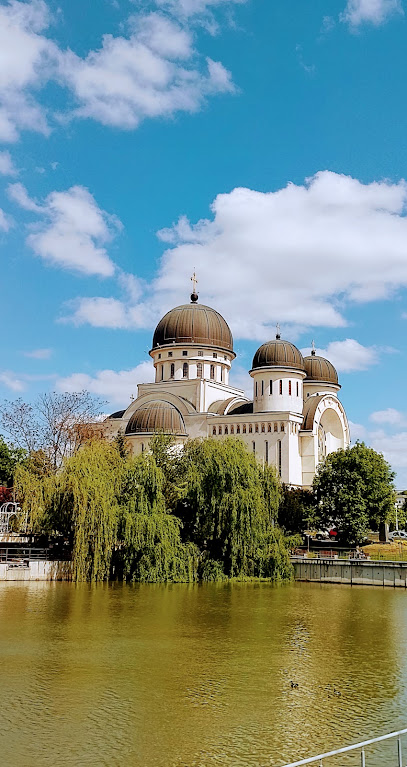
Maria Theresia Bastion
Explore the architectural beauty and historical significance of Maria Theresia Bastion, a premier landmark in Timișoara, Romania.
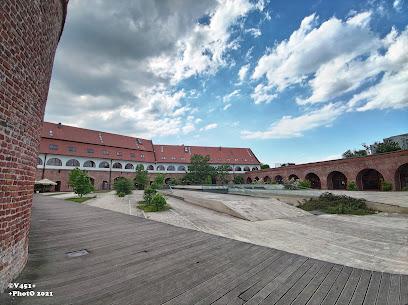
Reconciliation Park
Explore Reconciliation Park in Arad, a serene memorial park celebrating the rich cultural ties between Romania and Hungary amid stunning landscapes.
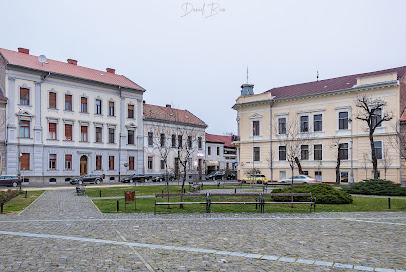
Opera Națională Română din Timișoara
Experience the cultural heartbeat of Timișoara at the Romanian National Opera, where stunning performances and exquisite architecture await.
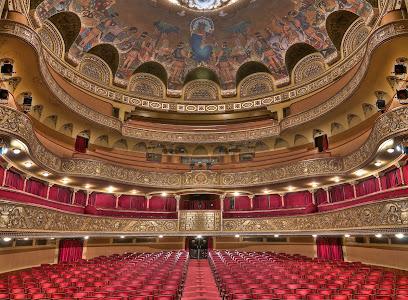
Regina Maria Park
Discover the tranquility and beauty of Regina Maria Park, Timișoara's beloved green oasis perfect for relaxation and outdoor adventures.
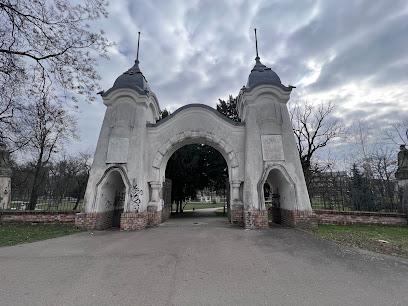
Mures Floodplain Natural Park
Discover the serene beauty and diverse wildlife of Mureș Floodplain Natural Park, an ecological haven in Romania perfect for outdoor enthusiasts.
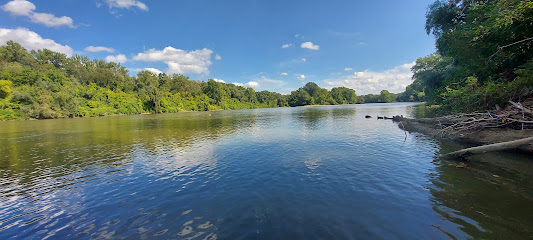
Muzeul Consumatorului Comunist
Discover the Communist Consumer Museum in Timișoara, a unique attraction showcasing the consumer culture of Romania's communist era through engaging exhibits and artifacts.
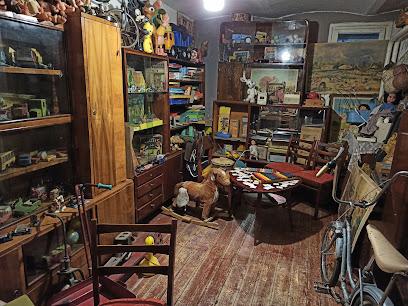
Arad Museum
Experience the artistic and cultural history of Arad at the Arad Museum, a must-visit destination for tourists seeking to uncover Romania's rich heritage.
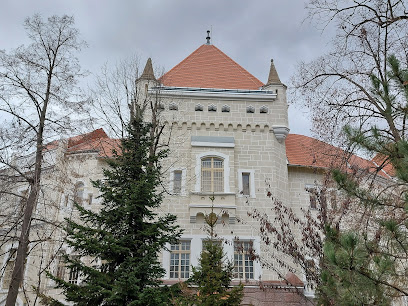
Essential places to dine
Euphoria Biergarten Arad
Discover Euphoria Biergarten in Arad – where vibrant flavors meet warm hospitality in an unforgettable dining experience.
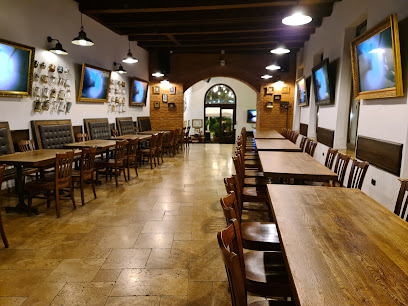
La Bottega Beer&Grill
Discover La Bottega Beer&Grill in Arad - A culinary gem offering delicious grilled dishes and a wide selection of beers in a welcoming atmosphere.
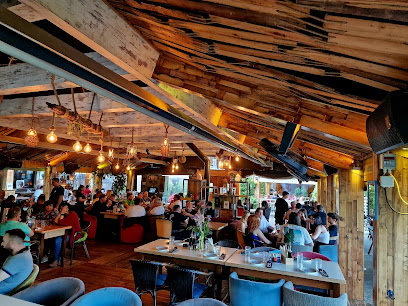
Curtea Veche
Discover authentic Romanian flavors at Curtea Veche in Arad – where tradition meets modern culinary art.
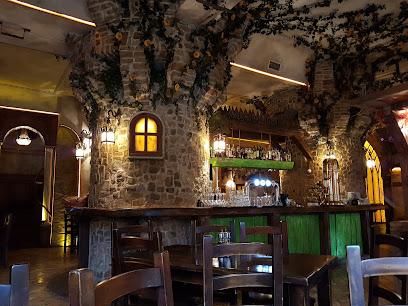
La Pergola
Experience exquisite dining at La Pergola in Arad with a menu that celebrates local flavors and international cuisine.
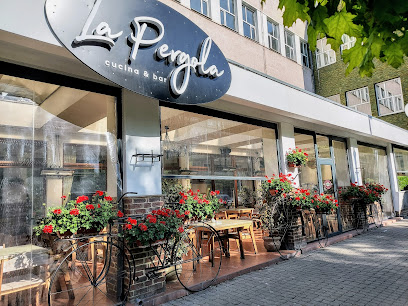
Rațio Beach
Discover Rațio Beach: Where Delicious Dining Meets Breathtaking Riverside Views in Arad.
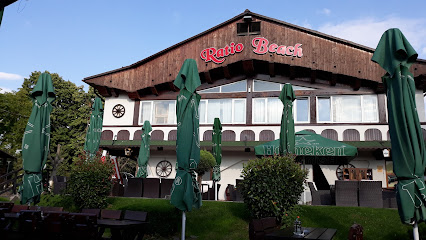
Cocoşul de Aur
Discover authentic Romanian cuisine at Cocoşul de Aur in Arad, where traditional flavors meet warm hospitality in a charming setting.
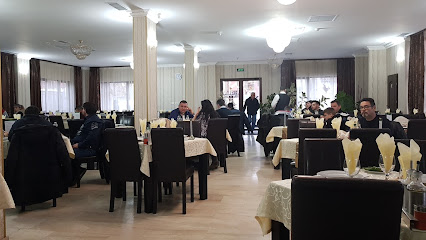
Noi Restaurant
Experience exquisite Romanian cuisine with a modern twist at Noi Restaurant in Arad - where every dish tells a story.
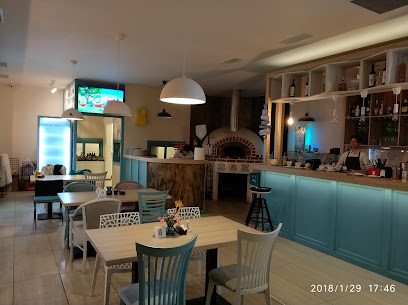
Piccolo Bistro
Experience the rich flavors of Romania at Piccolo Bistro in Arad – where every meal is a celebration of local cuisine.
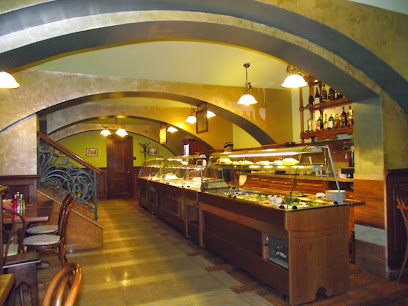
Restaurant Rațio
Discover the authentic taste of Romania at Restaurant Rațio in Arad – where tradition meets modern culinary art.
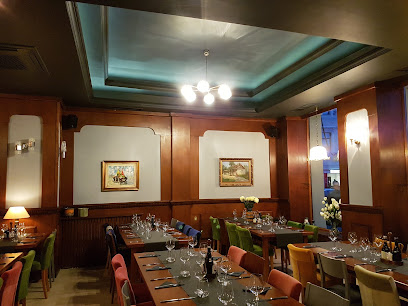
Restaurant Transilvania
Experience authentic Romanian cuisine at Restaurant Transilvania in Arad, where tradition meets taste in a warm and inviting atmosphere.
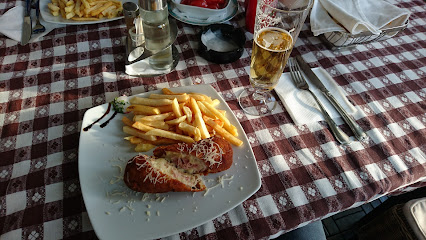
Restaurant Don
Experience the authentic taste of Romania at Restaurant Don – where delicious pizzas meet local charm in Arad.
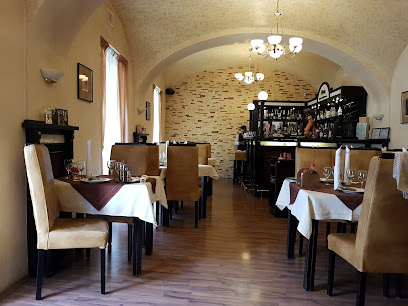
Pizza Italia
Discover authentic Italian flavors at Pizza Italia in Arad – where every slice tells a story.
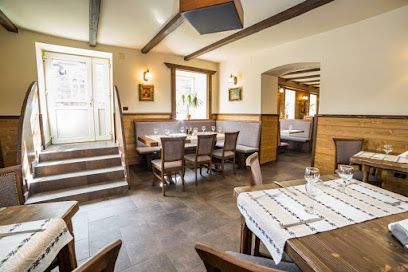
Cinecitta
Experience exquisite dining at Cinecitta in Arad – where local flavors meet international cuisine in a chic setting.
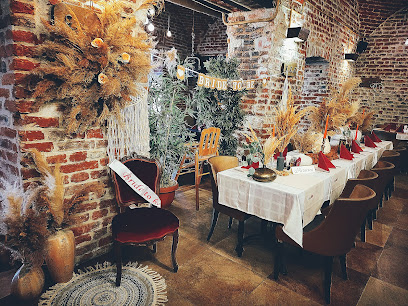
Kril
Discover the flavors of Romania at Kril - where tradition meets modern dining in the heart of Arad.
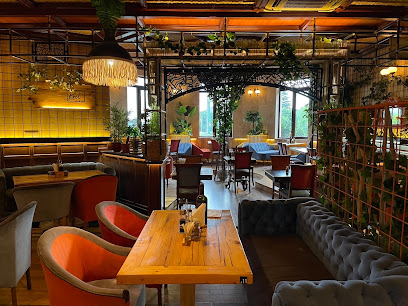
Marin & Friends
Discover authentic Romanian flavors blended with international cuisine at Marin & Friends in Arad.
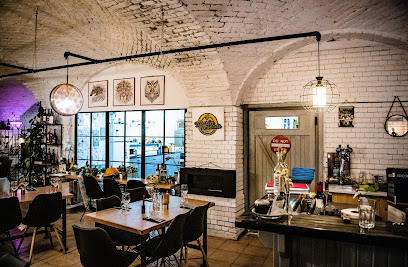
Markets, malls and hidden boutiques
Atrium Mall
Discover Atrium Mall in Arad: a premier shopping destination with diverse stores, dining options, and entertainment for every traveler.
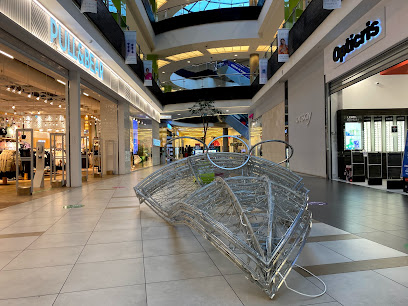
Hervis Arad Atrium Center
Discover a world of sports at the Hervis Arad Atrium Center, where adventure meets quality gear for every outdoor enthusiast.
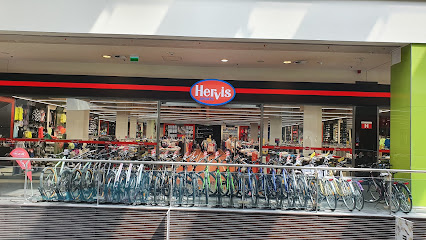
Foto-Video Enigma
Discover the perfect blend of photography and unique gifts at Foto-Video Enigma, Arad's charming souvenir haven.
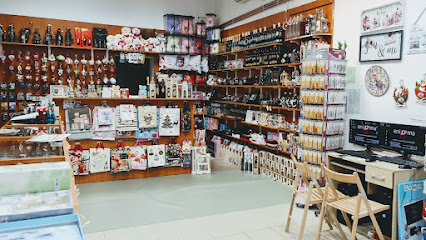
Bazar german Arad
Explore the unique offerings of Bazar German Arad, a boutique bazar showcasing local crafts and specialty items in the heart of Romania.
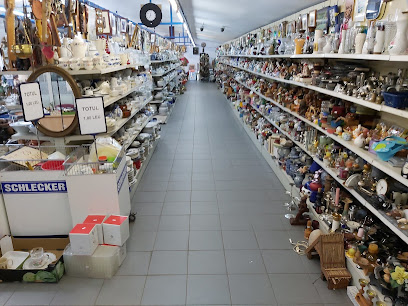
The Store Arad
Explore the rich beverage culture of Romania at The Store Arad, your gateway to a diverse range of local and international drinks.
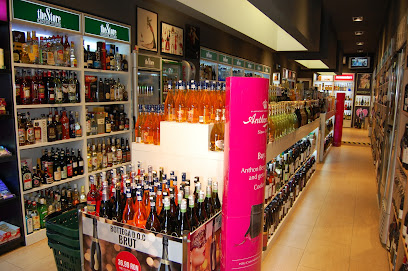
Imbracaminte Second Hand - Textile House Romania
Explore sustainable fashion at Textile House Romania, your go-to second-hand store in Arad for unique clothing finds and eco-friendly shopping.
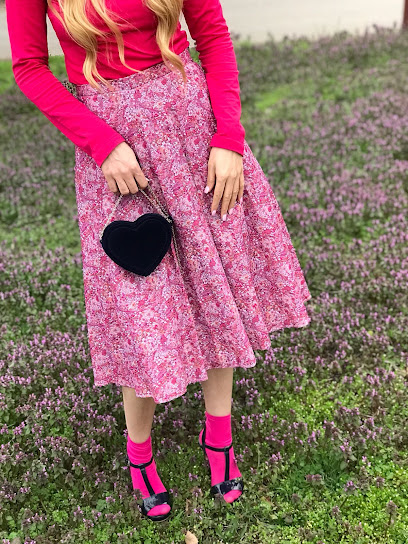
Amsterdam Shop Arad
Explore the charm of Arad at Amsterdam Shop, your destination for unique gifts and local treasures that capture the spirit of Romania.
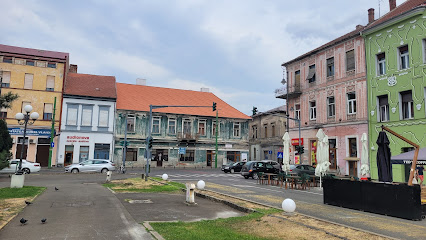
Noriel
Explore Noriel in Arad for an unforgettable family shopping experience filled with toys, games, and children's fashion.
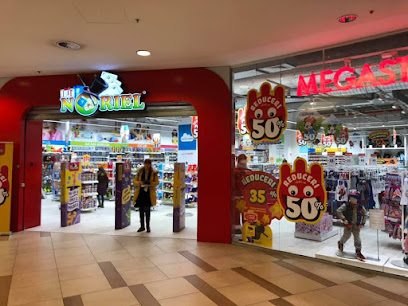
Ginsari Parfumuri (EC) Atrium Arad
Explore Ginsari Parfumuri in Arad for a captivating selection of fragrances that make perfect souvenirs and gifts.
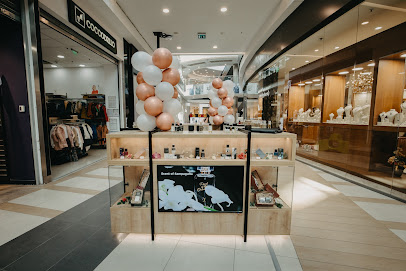
Bershka
Discover the latest fashion trends at Bershka in Arad, a vibrant clothing store offering stylish apparel and accessories for every taste.
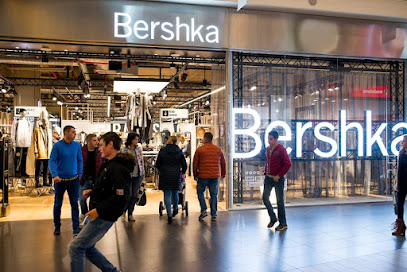
City Square
Discover the vibrant City Square of Arad, a perfect blend of shopping, dining, and cultural experiences in the heart of Romania.
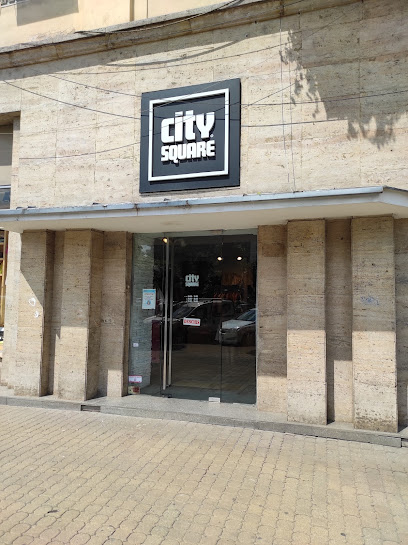
Ginsari Parfumuri (EC) Arad - Depozit
Explore Ginsari Parfumuri in Arad for an enchanting selection of fragrances and cosmetics that elevate your beauty experience.
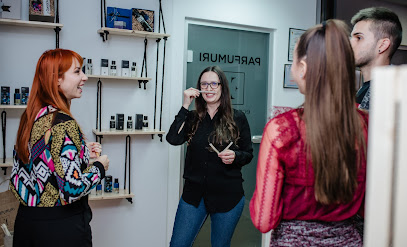
Half Price
Explore a diverse selection of fashion at Half Price, the go-to clothing store in Arad for trendy outfits and unbeatable deals.
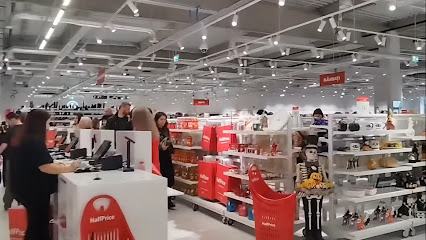
Sneakers store
Explore the best sneaker store in Arad, featuring a wide selection of trendy footwear and exclusive collections for every sneaker lover.
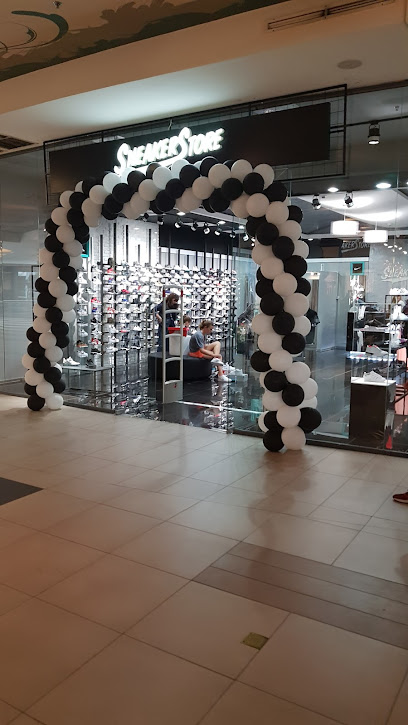
Magazin Imbracaminte second hand - Textile House Romania
Explore the charm of second-hand fashion at Textile House Romania, where unique styles and sustainable shopping meet in Arad.
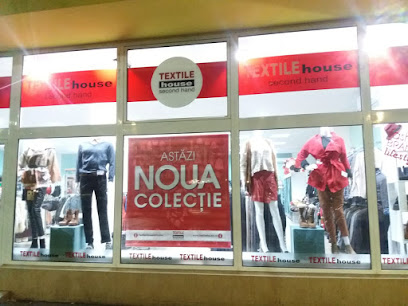
Essential bars & hidden hideouts
Euphoria Biergarten Arad
Experience the vibrant flavors and inviting atmosphere of Euphoria Biergarten, a top dining destination in Arad, Romania.
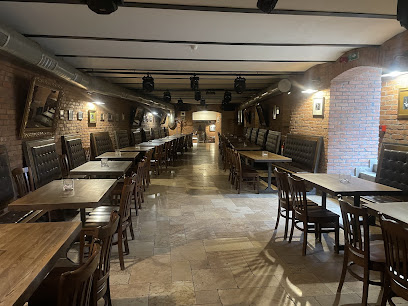
Club Nerv
Experience the vibrant nightlife of Arad at Club Nerv, where eclectic music and a lively atmosphere come together for an unforgettable evening.
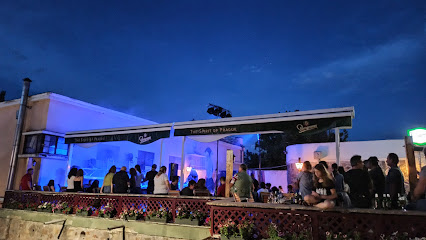
Irish Pub
Experience the warmth of Irish culture at the Irish Pub in Arad, offering delicious food, drinks, and a welcoming atmosphere for all.
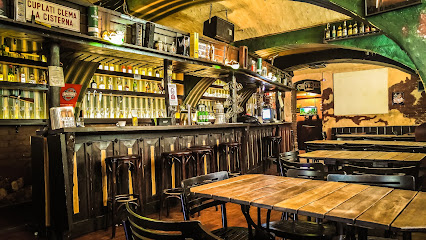
Old Lady's Pub
Discover the inviting ambiance and local flavors at Old Lady's Pub in Arad, where every sip and bite tells a story.
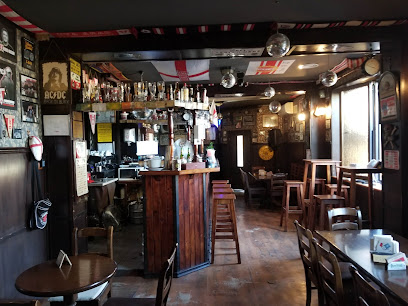
Cafe Bar CARTIER
Experience the vibrant atmosphere of Café Bar Cartier in Arad, where exceptional coffee meets delicious gastropub cuisine in a cozy setting.
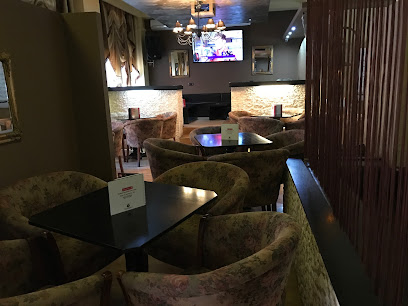
One More Beer
Discover the vibrant nightlife of Arad at One More Beer, where local culture meets a welcoming atmosphere and diverse drink selections.
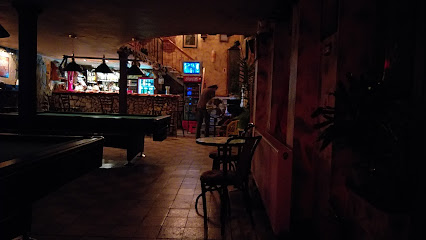
Methexis Wine Concept Bar & Shop
Experience the elegance of wine at Methexis Wine Concept Bar & Shop, where every sip tells a story in the heart of Arad.
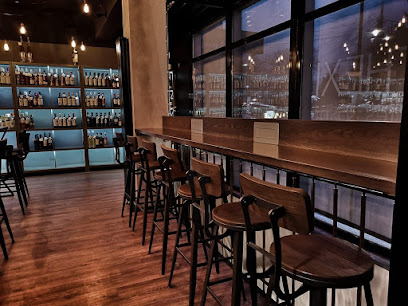
KFarad
Experience the vibrant nightlife at KFarad, a premier bar in Arad, offering an extensive drink menu and a lively atmosphere perfect for socializing.
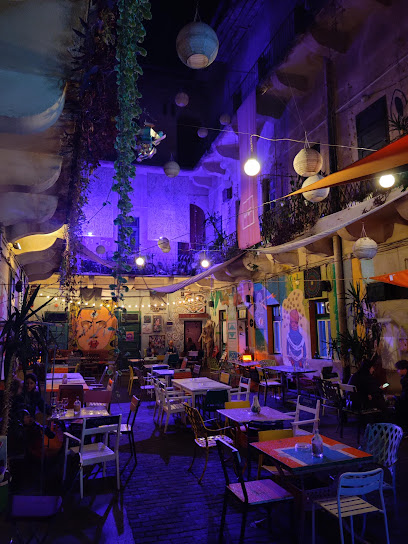
Irish Garden
Experience the vibrant atmosphere of the Irish Garden in Arad, where rich flavors and local culture come together in a beautiful outdoor setting.
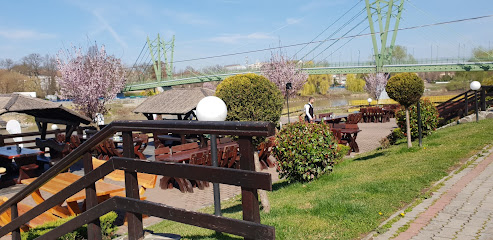
Wings PUB Arad
Experience the lively atmosphere of Wings PUB Arad, where delicious food meets a vibrant nightlife in the heart of the city.
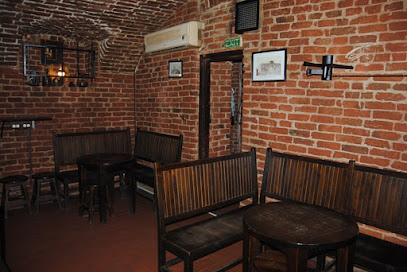
Patchouli pe Plaja
Experience the vibrant atmosphere of Patchouli pe Plaja, Arad's premier beachside bar for relaxation, good drinks, and great company.
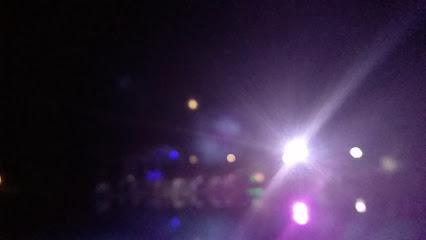
Alfa Bar
Discover Alfa Bar in Arad: a vibrant hub for drinks, socializing, and local culture in the heart of Romania.
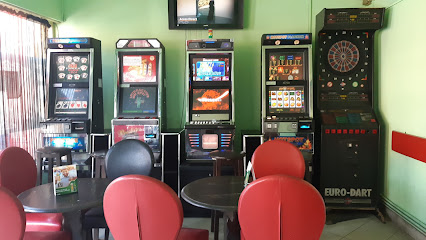
Derby Bar
Experience the vibrant nightlife of Arad at Derby Bar, where friendly service meets a lively atmosphere and a diverse drink menu.
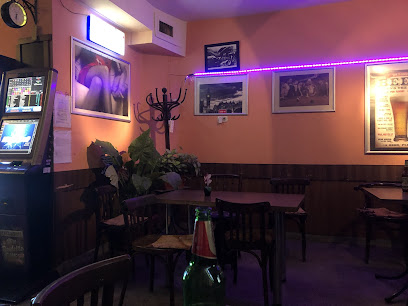
Wishes caffe&lounge
Discover the charm of Wishes Caffe & Lounge in Arad, where cozy vibes meet delicious drinks and delightful cuisine.
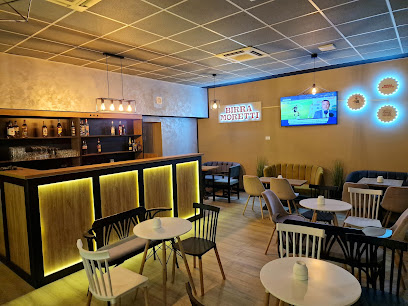
Local Phrases
-
- HelloSalut
[sah-loot] - GoodbyeLa revedere
[lah re-ve-de-re] - YesDa
[dah] - NoNu
[noo] - Please/You're welcomeTe rog/Cu plăcere
[te rohg/coo pluh-che-re] - Thank youMulțumesc
[mool-tsoo-mesk] - Excuse me/SorryScuzați-mă/Scuze
[skoo-za-tsi-muh/skoo-tse] - How are you?Ce faci?
[cheh fah-chi] - Fine. And you?Bine. Și tu?
[bee-neh/shee too] - Do you speak English?Vorbiți engleză?
[vor-bee-tsi eng-le-zah] - I don't understandNu înțeleg
[noo uhn-tse-leg]
- HelloSalut
-
- I'd like to see the menu, pleaseAș dori să văd meniul, vă rog
[ush doh-ree suh vad me-nyool, vuh rohg] - I don't eat meatNu mănânc carne
[noo muh-nuhnk kar-ne] - Cheers!Noroc!
[noh-rohk] - I would like to pay, pleaseAș dori să plătesc, vă rog
[ush doh-ree suh pluh-tesk, vuh rohg]
- I'd like to see the menu, pleaseAș dori să văd meniul, vă rog
-
- Help!Ajutor!
[ah-yoo-tor] - Go away!Du-te!
[doo-teh] - Call the Police!Sunați Poliția!
[soo-na-tsi po-leet-syah] - Call a doctor!Sunați un doctor!
[soo-na-tsi oon dok-tor] - I'm lostM-am pierdut
[mahm pyer-dooot] - I'm illSunt bolnav
[soont bohl-nav]
- Help!Ajutor!
-
- I'd like to buy...Aș dori să cumpăr...
[ush doh-ree suh koom-puhr] - I'm just lookingDoar mă uit
[doh-ar muh ooit] - How much is it?Cât costă?
[kaht kohs-tuh] - That's too expensiveEste prea scump
[es-teh preh skoomp] - Can you lower the price?Puteți reduce prețul?
[poo-teh-tsi reh-doo-che preh-tsool]
- I'd like to buy...Aș dori să cumpăr...
-
- What time is it?Cât este ceasul?
[kaht yes-teh chas-ool] - It's one o'clockEste ora unu
[es-teh o-rah oon-oo] - Half past (10)Zece jumătate
[zeh-che joo-muh-ta-teh] - MorningDimineața
[dee-mee-neh-tsa] - AfternoonDupă-amiază
[doo-puh ah-mee-ah-zuh] - EveningSeara
[seh-ah-rah] - YesterdayIeri
[yehr] - TodayAstăzi
[ah-stuhz] - TomorrowMâine
[muh-ee-ne] - 1Unu
[oo-noo] - 2Doi
[doy] - 3Trei
[tray] - 4Patru
[pa-troo] - 5Cinci
[cheen-chee] - 6Șase
[shah-seh] - 7Șapte
[shahp-teh] - 8Opt
[opt] - 9Nouă
[noo-uh] - 10Zece
[zeh-che]
- What time is it?Cât este ceasul?
-
- Where's a/the...?Unde este unul/...?
[oon-deh yes-teh oo-noo] - What's the address?Care este adresa?
[ka-reh yes-teh ad-re-sah] - Can you show me (on the map)?Puteți să-mi arătați (pe hartă)?
[poo-teh-tsi suh-mee ah-rah-tsa-tsi (peh har-tuh)] - When's the next (bus)?Când este următorul (autobuz)?
[kund yes-teh oor-muh-toh-rool (ow-toh-booz)] - A ticket (to ....)Un bilet (spre ....)
[oon bee-let (spreh)]
- Where's a/the...?Unde este unul/...?
History of Arad
-
Arad's history dates back to its early beginnings as a Dacian settlement. The area was later influenced by Roman expansion, seen through archaeological finds that include Roman coins and artifacts. The presence of Roman roads and fortifications highlight the strategic importance of Arad during the Roman era.
-
During the medieval period, Arad evolved significantly. It was first mentioned in historical documents in the 11th century, under the Kingdom of Hungary. By the 13th century, Arad had developed into a fortified settlement. The construction of the Fortress of Arad in the 16th century further solidified its importance as a defensive stronghold against Ottoman incursions.
-
In the 16th century, Arad came under Ottoman rule, which lasted until the late 17th century. The city's architecture and cultural influences from this period are still visible today. Following the Treaty of Karlowitz in 1699, Arad came under Habsburg rule, marking the beginning of significant economic and infrastructural development. The construction of baroque-style buildings and the establishment of trade routes marked this era.
-
Arad played a crucial role during the Hungarian Revolution of 1848-1849. The city served as a center for revolutionary activities and was the site where 13 Hungarian generals, later known as the 'Martyrs of Arad,' were executed by the Habsburgs. This event is a pivotal moment in Arad's history and is commemorated by several monuments and memorials throughout the city.
-
The late 19th century saw rapid industrial growth in Arad. The establishment of factories, railways, and an expansion of the city's infrastructure marked this period. Arad became one of the most important industrial centers in the region, with significant contributions to the textile and machinery industries.
-
Following World War I and the Treaty of Trianon in 1920, Arad became part of Greater Romania. The interwar period was marked by cultural and economic growth. Arad's diverse population, including Romanians, Hungarians, Germans, and Jews, contributed to a rich cultural tapestry. Educational institutions, theaters, and cultural societies flourished during this time.
-
During World War II, Arad faced occupation and significant hardships. Post-war, the city became part of the Socialist Republic of Romania under communist rule. This era saw the nationalization of industries and significant changes in the urban landscape, including the construction of large residential blocks and the promotion of socialist realism in architecture.
-
The fall of communism in 1989 marked the beginning of a new era for Arad. The city transitioned towards a market economy, leading to modernization and development. The preservation of historical sites, combined with new investments in infrastructure and tourism, has positioned Arad as a significant cultural and economic hub in western Romania.
Arad Essentials
-
Arad is located in western Romania, close to the Hungarian border. The nearest international airport is Traian Vuia International Airport in Timișoara, approximately 50 kilometers away. From there, you can take a bus, rent a car, or hire a taxi to reach Arad. Alternatively, Arad can be reached by train or bus from major Romanian cities such as Bucharest, Cluj-Napoca, and Timișoara. Arad is also well-connected by road, making it accessible by car.
-
Arad has an efficient public transportation system, including buses and trams that connect various parts of the city. Tickets can be purchased at kiosks or directly from the driver. Taxis are also readily available and relatively inexpensive. For more flexibility, consider renting a car. Many attractions in Arad are within walking distance, making it convenient to explore the city on foot.
-
The official currency in Romania is the Romanian Leu (RON). Credit and debit cards are widely accepted in hotels, restaurants, and shops. However, it is advisable to carry some cash, especially when visiting smaller establishments or rural areas. ATMs are plentiful in Arad, and currency exchange offices are available for converting foreign money.
-
Arad is generally a safe destination for tourists. However, as with any city, it is wise to take standard precautions. Avoid walking alone at night in unfamiliar areas and be aware of your surroundings. Areas around the main train station and some outlying neighborhoods might have higher crime rates, so extra caution is advised there. Keep an eye on your belongings in crowded places to avoid pickpocketing.
-
In case of emergency, dial 112 for immediate assistance, which covers police, fire, and medical emergencies. Arad has several hospitals and clinics where you can receive medical care. Pharmacies are also available for over-the-counter medications. It is recommended to have travel insurance that covers medical emergencies during your visit.
-
Fashion: Do dress modestly, especially when visiting religious sites. Avoid overly casual or revealing clothing. Religion: Do respect local customs and traditions. When entering churches or religious sites, dress appropriately and remain quiet. Public Transport: Do validate your ticket when boarding public transport. Don’t forget to offer your seat to elderly passengers or those with disabilities. Greetings: Do greet people with a handshake. A friendly 'Bună ziua' (Good day) is always appreciated. Eating & Drinking: Do try local dishes and accept food or drink offerings graciously. Don't be overly critical of the food, as it might be considered impolite.
-
To experience Arad like a local, visit the local markets where you can buy fresh produce and traditional Romanian goods. Engage with locals, who are generally friendly and willing to share stories about the city's history and culture. Don't miss the Arad Fortress, the Neumarkt Church, and the beautiful architecture along Bulevardul Revoluției. For a unique experience, take a stroll along the Mureș River and enjoy the local parks.
Trending Landmark in Arad
Nearby Cities to Arad
-
Things To Do in Szeged
-
Things To Do in Subotica
-
Things To Do in Deva
-
Things To Do in Kecskemet
-
Things To Do in Debrecen
-
Things To Do in Pančevo
-
Things To Do in Novi Sad
-
Things To Do in Belgrade
-
Things To Do in Smederevo
-
Things To Do in Cluj-Napoca
-
Things To Do in Nyiregyhaza
-
Things To Do in Târgu Jiu
-
Things To Do in Drobeta-Turnu Severin
-
Things To Do in Eger
-
Things To Do in Satu Mare












